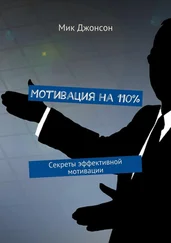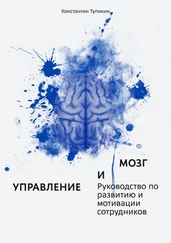Newman, Joan, and Alan Taylor. “Effect of a Means-End Contingency on Young Children’s Food Preferences.” Journal of Experimental Child Psychology 64 (1992): 200–216.
Newman, Richard S. “Goals and Self-Regulated Learning: What Motivates Children to Seek Academic Help?” In Advances in Motivation and Achievement , vol. 7, edited by Martin L. Maehr and Paul R. Pintrich. Greenwich, Conn.: JAI Press, 1991.
Nicholls, John G. The Competitive Ethos and Democratic Education. Cambridge: Harvard University Press, 1989.
Nicholls, John G., and Susan P. Hazzard. Education as Adventure: Lessons from the Second Grade. New York: Teachers College Press, 1993.
Niehoff, Brian P., and Debra J. Mesch. “Effects of Reward Structures on Academic Performance and Group Processes in a Classroom Setting.” Journal of Psychology US (1991): 457–467.
Noble, Barbara Presley. “Dissecting the 90’s Workplace: A New Study Says Employees Will Trade Compensation for Quality of Life.” New York Times , 19 September 1993: F21.
Nolen, Susan Bobbin. “Reasons for Studying: Motivational Orientations and Study Strategies.” Cognition and Instruction 5 (1988): 269–287.
Nolen, Susan Bobbitt, and John G. Nicholls. “A Place to Begin (Again) in Research on Student Motivation: Teachers’ Beliefs.” Teaching and Teacher Education 10 (1994): 57–69.
Nord, Walter R. “The Failure of Current Applied Behavioral Science – A Marxian Perspective.” Journal of Applied Behavioral Science 10 (1974): 557–578.
O’Brien, Shirley J. “Praising Children: Five Myths.” Childhood Education , Summer 1990: 248–249.
O’Dell, Carla. People, Performance, and Pay. Houston: American Productivity Center, 1987.
Ohanian, Susan. “There’s Only One True Technique for Good Discipline.” Learning , August 1982: 16–19.
O’Leary, K. Daniel, Rita W. Poulos, and Vernon T. Devine. “Tangible Rein-forcers: Bonuses or Bribes?” Journal of Consulting and Clinical Psychology 38 (1972): 1–8.
Olson, Lynn. “Quality-Management Movement Spurs Interest in New Awards for Education.” Education Week , 18 March 1992: 8.
O’Neil, John. “Wanted: Deep Understanding.” ASCD Update , March 1992: 1–8.
O’Reilly, Charles A., Ill, and Sheila M. Puffer. “The Impact of Rewards and Punishments in a Social Context: A Laboratory and Field Experiment.” Journal of Occupational Psychology 62 (1989): 41–53.
Orlick, Terry D., and Richard Mosher. “Extrinsic Awards and Participant Motivation in a Sport-Related Task.” International Journal of Sport Psychology 9 (1978): 27–39.
Ostroff, Cheri. “The Relationship Between Satisfaction, Attitudes, and Performance: An Organizational Level Analysis.” Journal of Applied Psychology 77 (1992): 963–974.
Ouchi, William G. Theory Z. New York: Avon, 1982.
Pallak, Suzanne R., Steven Costomiris, Susan Sroka, and Thane S. Pittman. “School Experience, Reward Characteristics, and Intrinsic Motivation.” Child Development 53 (1982): 1382–1391.
Palmer, Thomas C. “Will Legislature Expand School Choice?” Boston Globe , 6 December 1992: A36.
Parke, Ross D. “Effectiveness of Punishment as an Interaction of Intensity, Timing, Agent Nurturance, and Cognitive Structuring.” Child Development 40 (1969): 201–212.
Pattern, Arch. “Why Incentive Plans Fail.” Harvard Business Review , May-June 1972: 58–66.
Paul, William J., Jr., Keith B. Robertson, and Frederick Herzberg. “Job Enrichment Pays Off.” Harvard Business Review , March-April 1969: 61–78.
Pearce, Jone L. “Why Merit Pay Doesn’t Work: Implications from Organization Theory.” In New Perspectives on Compensation , edited by David B. Balkin and Luis R. Gomez-Mejia. Englewood Cliffs, N.J.: Prentice-Hall, 1987.
Pearce, Jone L., and James L. Perry. “Federal Merit Pay: A Longitudinal Analysis.” Public Administration Review 43 (1983): 315–325.
Pearce, Jone L., and Lyman W. Porter. “Employee Responses to Formal Performance Appraisal Feedback.” Journal of Applied Psychology 71 (1986): 211–218.
Pearce, Jone L., William B. Stevenson, and James L. Perry. “Managerial Compensation Based on Organizational Performance: A Time Series Analysis of the Effects of Merit Pay.” Academy of Management Journal 28 (1985): 261–278.
Pearlman, Charles. “The Effects of Level of Effectance Motivation, IQ, and a Penalty/Reward Contingency on the Choice of Problem Difficulty.” Child Development 55 (1984): 537–542.
Peck, Charles A. “Increasing Opportunities for Social Control by Children with Autism and Severe Handicaps: Effects on Student Behavior and Perceived Classroom Climate.” Journal of the Association for Persons with Severe Handicaps 10 (1985): 183–193.
Pelletier, Luc G., and R. J. Vallerand. “Behavioral Confirmation in Social Interaction: Effects of Teachers’ Expectancies on Students’ Intrinsic Motivation.” Paper presented at the annual convention of the Canadian Psychological Association, Halifax, June 1989. Summarized in Canadian Psychology 30 (1989): 404.
Pelletier, Luc G., and R. J. Vallerand. “Supervisors’ Beliefs and Subordinates’ Intrinsic Motivation: A Behavioral Confirmation Analysis.” Journal of Personality and Social Psychology 71 (1996): 331–340.
Perlmuter, Lawrence C, and Richard A. Monty. “The Importance of Perceived Control: Fact or Fantasy?” American Scientist , November-December 1977: 759–765.
Perry, Stewart E. San Francisco Scavengers: Dirty Work and the Pride of Ownership. Berkeley: University of California Press, 1978.
Peters, Thomas J., and Robert H. Waterman, Jr. In Search of Excellence: Lessons front America’s Best-Run Companies. New York: Harper & Row, 1982.
Peters, Tom. Thriving on Chaos. New York: Knopf, 1987.
Peters, Tom. Letter to the Editor. Inc. , April 1988: 80–82.
Peterson, Robert F. “Power, Programming, and Punishment: Could We Be Over-controlling Our Children?” In Behavior Modification and Families , edited by Eric J. Mash, Leo A. Hamerlynck, and Lee C. Handy. New York: Brunner/Mazel, 1976.
Petty, M. M., Gail W. McGee, and Jerry W. Cavender. “A Meta-Analysis of the Relationships Between Individual Job Satisfaction and Individual Performance.” Academy of Management Review 9 (1984): 712–721.
Petty, M. M., Bart Singleton, and David W. Connell. “An Experimental Evaluation of an Organizational Incentive Plan in the Electric Utility Industry.” Journal of Applied Psychology 77 (1992): 427–436.
Phillips, James S., and Sara M. Freedman. “Contingent Pay and Intrinsic Task Interest: Moderating Effects of Work Values.” Journal of Applied Psychology 70 (1985): 306–313.
Piaget, Jean. The Moral Judgment of the Child. Translated by Marjorie Gabain. New York: Free Press, 1965.
Pinder, Craig C. “Additivity Versus Nonadditivity of Intrinsic and Extrinsic Incentives: Implications for Work Motivation, Peformance, and Attitudes.” Journal of Applied Psychology 61 (1976): 693–700.
Pinder, Craig C. “Concerning the Application of Human Motivation Theories in Organizational Settings.” Academy of Management Review 2 (1977): 384–397.
Pittman, Thane S., Ann K. Boggiano, and Deborah S. Main. “Intrinsic and Extrinsic Motivational Orientations in Peer Interactions.” In Achievement and Motivation: A Social-Developmental Perspective , edited by Ann K. Boggiano and Thane S. Pittman. Cambridge: Cambridge University Press, 1992.
Читать дальше
Конец ознакомительного отрывка
Купить книгу

![Олег Абакумов - Третье отделение на страже нравственности и благочиния [Жандармы в борьбе со взятками и пороком, 1826–1866 гг.]](/books/27001/oleg-abakumov-trete-otdelenie-na-strazhe-nravstven-thumb.webp)










